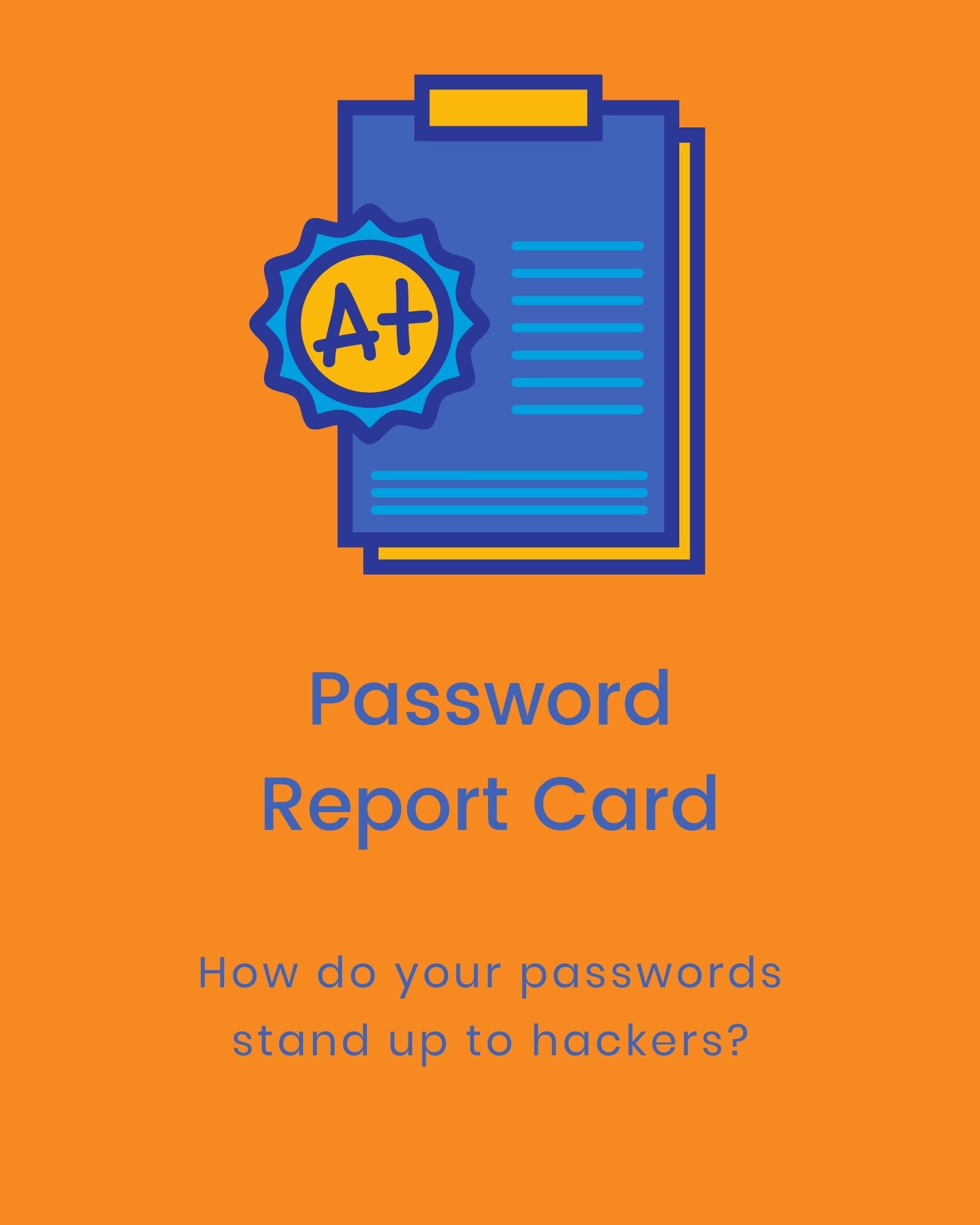What makes a strong password that is not easily hackable? The most common passwords (cleartext, alphanumeric) are all brute forcible in a matter of seconds. This is if they have not already been exposed in a previous data breach. How does your password stand up when it comes to crack-ability? Read the report card below to find out your password strength.
Check your passwords against this grade sheet, to see whether you would pass or fail the test.
All numbers or lowercase characters (8 or fewer characters)
- Example “202132”/ “goflyers”
- Easily hackable in the blink of any eye. Most people know not to do this!

Combination of numbers, upper and lowercase characters (8 or fewer characters)
- Example “sem2132” or “flyers21”
- Slightly better, but still super easy to guess or crack!

Combination of numbers, upper and lowercase characters (8 or fewer characters)
- Example “Sarah21” or “Flyers21”
- Where most people are these days. Dictionary attacks will break both in a few minutes.

Long password phrases
- Example “correcthorsebatterystaple”
- Much better than the options above! Easier to remember and the length of the password makes it harder to crack.

Long password phrases with a “stop” character, symbol or number
- Example “webutterthebre$adwith butter”
- About the best you can do!

Password Managers
- Randomly generated long passwords take the most exploitable element (the human element) out of password creation.

How did you do? The majority of people receive an F or D on their passwords. That means your sensitive data is on the Dark Web. In fact, 90% of small to mid-sized organizations have some combination of email address, password, and other PII data on the Dark Web. The consequences of exposed information can be catastrophic; sensitive information stolen, damaged data, liability, and financial loss.
So what do you do now?
Prismworks Technology will provide a Free Report to tell you if your oranigaizatons PII is on the Dark Web.

